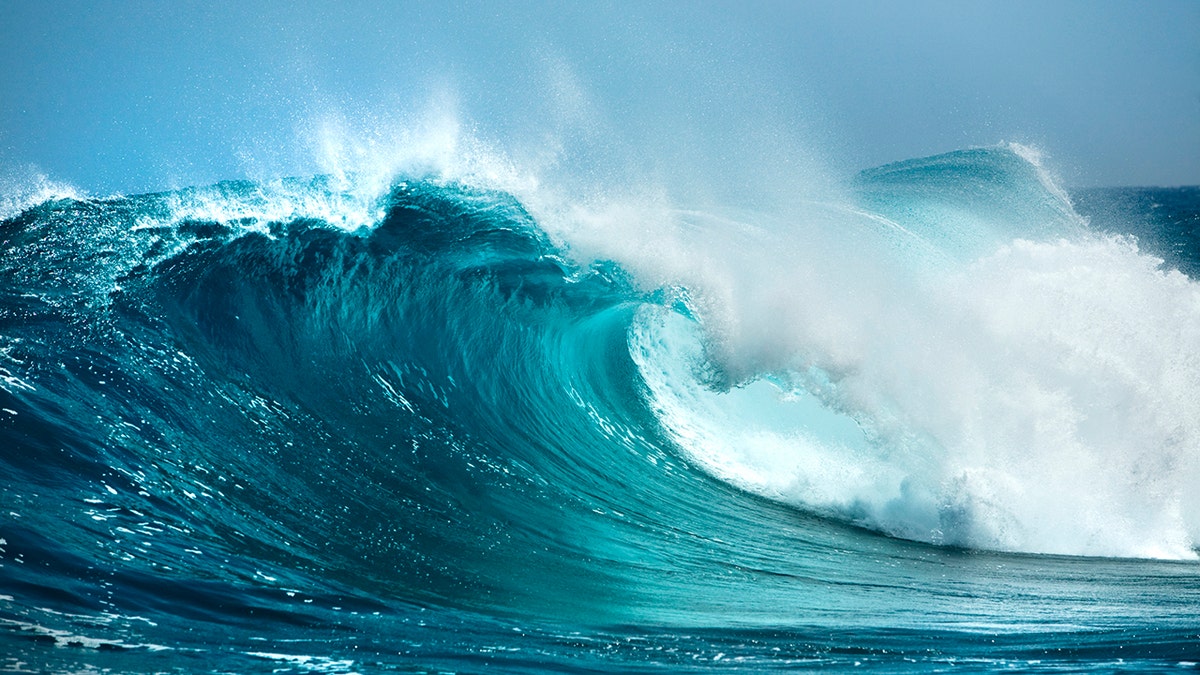Fox News Flash top headlines for February 10
Fox News Flash top headlines are here. Check out what's clicking on Foxnews.com.
A "once-in-a-millennium" wave that broke off the coast of Vancouver, British Columbia, in November 2020 is now considered to be the most "extreme" rogue wave ever recorded, Canadian scientists have found.
A rogue wave is considered to be more than twice the height of other waves breaking around the same time.
The wave, detected off the tiny town of Ucluelet with a sensor buoy, was recorded at 17.6 meters tall or 57.7 feet while other swells around the same time were only 6 meters or 19.6 feet tall, making it three times higher, CTV News reported.
"Only a few rogue waves in high sea states have been observed directly, and nothing of this magnitude," University of Victoria scientist Johannes Gemmrich, who co-led the research with Leah Cicon, said. "The probability of such an event occurring is once in 1,300 years."

An ocean wave (iStock)
The research by the University of Victoria scientists was first published in the academic journal Scientific Reports last week.
"Proportionally, the Ucluelet wave is likely the most extreme rogue wave ever recorded," he added.

The wave was recorded off of Ucluelet Harbour, Vancouver Island, British Columbia, Canada.
Rogue waves are also sometimes called "freak" or "killer" waves and can be extremely dangerous because of their "unpredictability" and "sheer power," MarineLabs CEO Scott Beatty said.
The first rogue wave ever recorded was off the coast of Norway in 1995. Known as the "Draupner wave," it was about 83.9 feet tall while other waves surrounding it were closer to 39 feet tall.

Students at the University of Victoria, where the research was conducted, move about between their classes on March 10, 2011. (iStock)
He said, "The potential of predicting rogue waves remains an open question, but our data is helping to better understand when, where and how rogue waves form, and the risks that they pose."
CLICK HERE TO GET THE FOX NEWS APP
"Capturing this once-in-a-millennium wave, right in our backyard, is a thrilling indicator of the power of coastal intelligence to transform marine safety," Beatty told CTV.









































